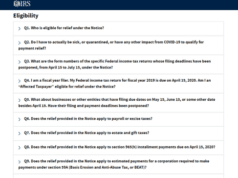
Economic downturns are inevitable, but those aren’t words of comfort for businesses struggling during a recession. Cash flow is often one of the first things to take a hit during these difficult times. A little cash flow planning can help. But it’s important to understand how an economic downturn impacts cash flow so that you can plan accordingly.
The Connection Between Economic Cycles And Cash Flow
Economic cycles, or business cycles, are the fluctuations between periods of growth and contraction. Several factors affect the cycle, including interest rates, unemployment rates, gross domestic product (GDP) and consumer spending.
Typically, there are four stages in an economic cycle, and each one impacts cash flow differently:
- Growth: During the growth or expansion phase, production ramps up and interest rates remain low. Unemployment is low, while corporate profits and productivity are high. During this period, it’s easier for businesses to maintain positive cash flow.
- Peak: When growth reaches its maximum rate, the cycle peaks. During this stage, there may be some imbalances in the economy, and businesses start reining in their spending. During this stage, cash flow can still be positive, but towards the end of the peak stage, businesses may begin to struggle in this department.
- Contraction: During the contraction stage, growth stalls, unemployment increases and prices stagnate. At this point, cash flow takes a hit, especially if businesses don’t take measures to slow production right away.
- Trough: At this stage, the economy has hit a low point. Supply and demand will hit bottom before the recovery process can begin. Cash flow may remain in the negative more often than not.
Economic downturns are a natural part of the economic cycle, but that doesn’t make it any easier for businesses to stay afloat and come through the other side unscathed.
Strategies For Managing Cash Flow During A Downturn
If contractions and troughs are inevitable, what can businesses do to minimize the cash flow impact of these stages?
These strategies can help:
Create Cash Flow Forecasts
Cash flow forecasts help you predict what your cash flow will be in the future, so you can take steps today to ensure you’re headed in the right direction.
For example, if your forecast shows a cash flow shortage next month, you might run a special promotion to ramp up sales and prevent that shortage.
If your forecast shows a surplus, you may use that extra cash to invest in growth or build up your cash reserves.
Creating cash flow forecasts manually or using a tool like Xero cash flow forecast will give you some insight into the future, so you can adjust your strategies accordingly.
Control Spending
Having a better understanding of your future cash flow is just one piece of the puzzle. During economic downturns, businesses must also rein in their spending.
Analyze every expense to find areas where costs can either be reduced or eliminated. For example, you may:
- Negotiate better prices or payment terms with vendors and suppliers
- Cut back on discretionary spending
Monitoring your spending can go a long way in helping you maximize your cash flow during economic downturns.
Diversify Your Offerings
When the economy is in a downturn, diversifying your offerings can help you maximize your income.
Consider offering new products or services or expanding into a new market. Exploring new revenue streams can help hedge against risk when the economy takes a turn for the worse.
The Role Of Cash Flow In Business Recovery
When times get tough in the economy, it can feel like there’s no end in sight. But fear not, because just like a tunnel, there’s always a light waiting to guide you through. And with a little strategic cash flow planning, you can make sure you emerge from the darkness stronger than ever before. By building up your reserves during the tough times, you’ll be poised for success when the economy starts to recover. So keep your eye on the prize and remember – the future is brighter than you think!
During recovery, cash can help businesses:
- Invest in new growth opportunities
- Hire more staff
- Expand into new markets
- Launch new products or services
Cash flow plays a crucial role in business recovery by allowing companies to maximize their opportunities as growth starts to ramp up.
Building Resilience Through Effective Cash Flow Management
Effective cash flow management builds resilience. When businesses have better control over their cash flow, they can invest in growth opportunities at the right time. These opportunities can provide alternate streams of revenue during slow periods.
Proper cash flow management can also help businesses build up cash reserves so that they are prepared for downturns and can weather the storm.
In Conclusion
Economic downturns impact business cash flow, but the extent of the cash flow impact will depend on the business’s resiliency. Those that have cash reserves and multiple avenues to generate income will find that they are in a better position to stay afloat during these difficult times.








